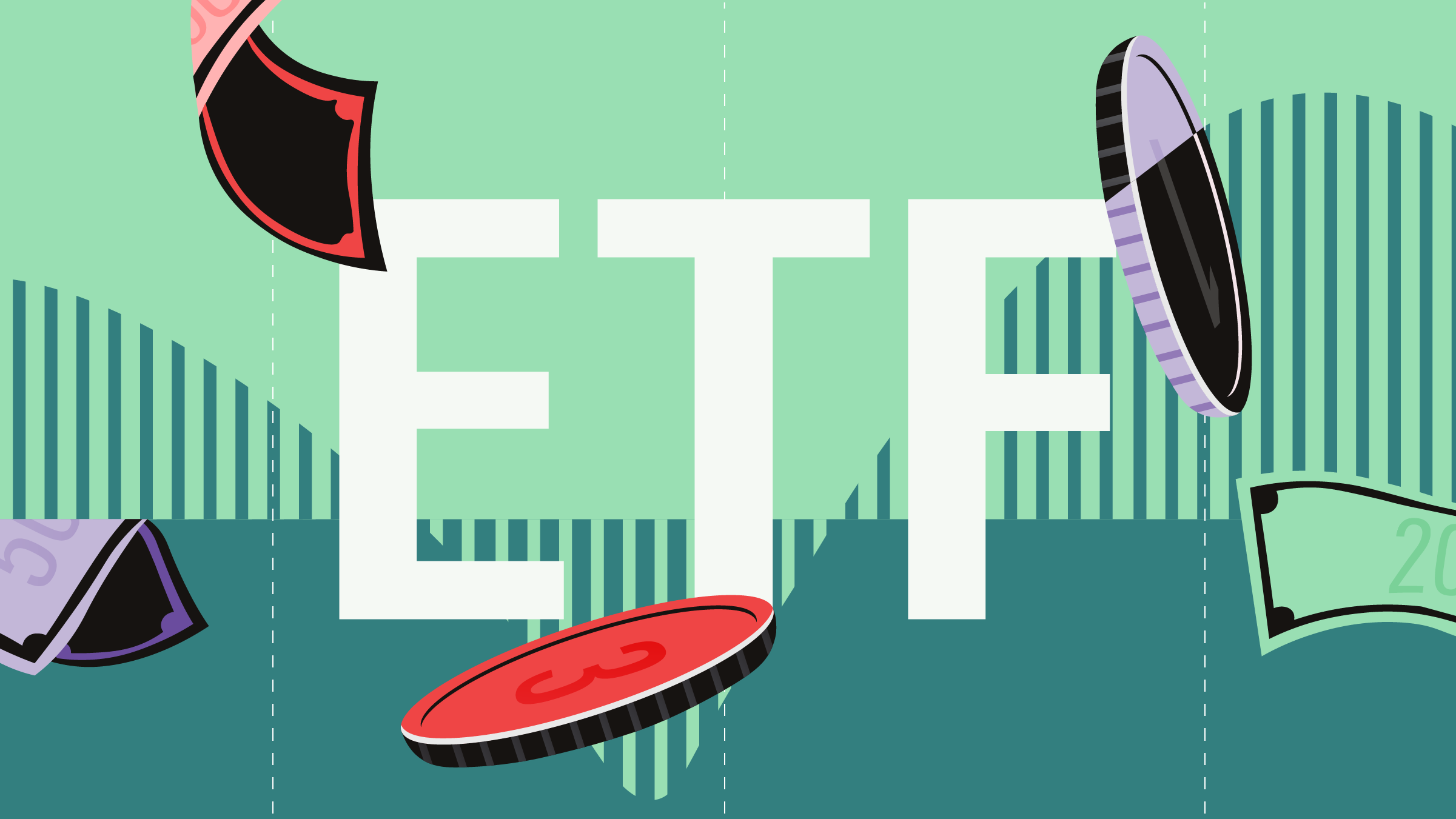Christian Charest: For Morningstar, I'm Christian Charest. There has been a lot of buzz around blockchain not just in the tech world but in the investment world as well. Here in Canada, there are already three exchange-traded funds that focus on blockchain technologies. And one of those is First Trust Indxx Innovative Transaction & Process ETF, symbol BLCK, which was launched in March. I'm here today Karl Cheong, Director and Head of Distribution at First Trust Canada.
Karl, thanks for joining us today.
Karl Cheong: Thank you, Christian.
Charest: So, no doubt blockchain has been extremely popular in the last little while. But popularity doesn't always make for a good investment. So, what's the investment case here?
Cheong: So, if you take a look at blockchain, it really is a global phenomenon. It's not just a Canada-specific or U.S. (issue). But when you look at some of the data, it's been pretty powerful. We are expecting the blockchain market to grow by 80% annually, which is just phenomenal growth in an era where you are seeing some lower-growth industries in the marketplace.
The second point I would say is that 90% of all financial institutions -- European, U.S. and Canada -- are either exploring or using a test case in order to apply blockchain to their overall business. And there was a study actually by Accenture that says when they took a look at the eight largest global investment banks that the cost savings might be US$8 billion to US$12 billion annually by implementing this type of technology. Finally, there have been studies out there that show that over 57% of global institutions are exploring blockchains in order to drive efficiency and improve margins in the overall business.
Charest: Now, from an investor's point of view, no doubt there is a lot of curiosity, but I think there's also a bit of knowledge gap as is the case with any new technology. I think a lot of the interest may have to do with the association of blockchain with bitcoin. So, can you tell us the distinction between bitcoin and blockchain?
Cheong: I think that's a critical point. And that's happened quite a bit of times during my conversations over the last several weeks. It's important to know that bitcoin needs blockchain; blockchain does not need bitcoin. You can think of it like internet and email, right? When people were first discovering the internet, they were doing so via its killer applications, whether it be websites or email. The same is happening here. So, you can think of blockchain as kind of the operating system that bitcoin runs on, in that most people are finding the blockchain via its most popular applications, which is, bitcoin and Ethereum and other crypto currencies. But there's obviously far greater applications that are being used by many different industries and that's what I'd like to talk a little bit about here today.
Charest: And to get into that, looking at the holdings list, it's kind of interesting. There are a lot of names that you wouldn't expect from a specialty technology fund. We're looking at Intel, Taiwan Semiconductors, IBM, Alibaba. These are big names. The fund's average market cap is around US$50 billion. What's the overall strategy here? How do these companies fit into the blockchain theme?
Cheong: We have a long history at First Trust of developing these types of products. We developed an internet ETF in the U.S. back in 2006 when it was just early days and we needed to try to figure out how to construct a portfolio. I liken it to this scenario because it's too early days to determine what exactly blockchain will look like. I think we're going to have to look out maybe five to 10 years. But you have several companies that are either exploring or testing this technology in the space now. And so, when you take a look at these companies, there is no line items on their financial statements that shows you how much revenue or expense reduction they are getting from blockchain.
I just think this technology is too new. And so, that reminds me of a story when we launched our Cloud Computing ETF in the U.S. in 2011 of Amazon. We knew Amazon was making significant investments in the cloud computing industry. We were very hopeful that it would be a significant contributor to the overall growth, but we didn't fully understand where it would take them. Today, fast-forward, take a look at Amazon Web Services as they break down that overall revenue. That's been a huge contributor to their growth.
So, I see some similarities there. I think it will evolve over time. But right now, the technology is too new. So, we focused on Fortune 500 companies that have the resources in order to invest in the technology in order to improve it and not so much on companies, what we've seen recently, that just changed their name, seen their stock price go up, help avoid de-listing and are now being investigated by the SEC. And so, we play it through more of a pick and axe approach, meaning that in a gold rush nine out of 10 companies go bankrupt. But everyone selling shovels and any utilities in order to help the gold miners are making money.
Charest: So, we're not talking about companies with two guys in a garage, building something brand new that's going to explode in value. We're talking about well-established companies. So, in that case, how is this fund different from any plain vanilla technology fund?
Cheong: It really is a good question. It's one we've gotten over the last several weeks. So, when you take a look at the market cap-weighted technology ETF, it is very top heavy with its holdings. The top 10 names represent close to 60% of the overall portfolio. Now, we do have some overlap. This is a technology fund. We have four of those names, but they represent less than 10% of our portfolio. The other mention I should say here, this is really a technology that can be used by a variety of industries. So, we have financial services, supply chain management companies like Walmart are actually in the portfolio. So, we have over 50 distinct holdings from the market cap-weighted technology ETF.
And so, I think, this can be also very complementary to the average tech-weighted ETF that are heavily invested in FANGs. And so, we diversify your holdings because we are not holding just Google and Apple and some of the other top tech-heavy names. We are also going to be a little bit cheaper mostly from a valuation perspective, from price-to-book, price-to-sales mostly because we avoid the FANGs. And then we are taking investing in really forward-looking global Fortune 500 companies in order to see they are going to utilize this technology in order to embrace change and in order to stay ahead of competitors.
Charest: Can you give us a couple of examples of how these big companies are using blockchain in their businesses?
Cheong: To step back, just to define what blockchain is, blockchain is a global distributed ledger that cuts out the middle man. It's almost like a big open spreadsheet that everyone can see. And it allows corporations and individuals and governments to transfer assets of value in a way that is safe, audible and secure. So, to conceptualize this, I will give you two examples.
In our industry, financial services, it often tends to be complex in the background. And one area is stock settlement, right? For most in my career stock settlement has been on a trade date plus three days afterwards to settle. Before my time I'm understanding it used to be trade date plus five days. Today, it's about T2 is what they call it, trade date plus two days. Within the blockchain, it will be trade date and instantaneous. It will be T0 because the purchase and settlement is the same transaction. It's just a change in the ledger. So, to show you how radical this change could be, you have exchanges like the Australian Stock Exchange that have implemented and tested some of this technology as well as you are seeing the Canadian security exchange here in Canada also considering implementing the blockchain on stock settlement.
Now, another area where I think it's highly relevant is the supply chain industry. An example I have is with IBM and Walmart, both names in the portfolio. IBM is what we consider an active enabler. They are enabling other companies in order to use blockchain. If you were to go on to IBM's website, as opposed to software-as-a-service there is blockchain-as-a-service. They are working with other companies on their platform to allow this technology. And Walmart being the large multinational company that it is, with hundreds of billions of revenues, are now testing it with products. And one example they have is with mangoes. They had a bad crop of mangoes. And through their normal checks and balances it took them about six days to identify where the farm was via phone calls and paperwork. On the blockchain that they are working on with IBM, which is what they consider a business blockchain, it took them 15 seconds. So, what does that do? It eliminates waste. You don't have to throw out the baby with the bathwater when it comes to the whole mango crop and it helps them avoid food-borne illnesses which is – we've all heard these food recalls over time, which drives efficiencies on their bottom-line.
Charest: Most investors who already have a diversified portfolio probably already have exposure to these names either through their U.S. equity or global equity large-cap funds. How can they integrate this particular ETF into their overall strategy then?
Cheong: Yeah. It's an excellent question, Christian. When you take a look at our holdings, over 60% of the names are international which are relatively inaccessible to most Canadian investors as they often don't have all the ADRs, like there's certain ADRs they can trade via the U.S. exchanges. But this is very much a global phenomenon, especially in areas like Asia where we've seen tremendous interest by companies like Alibaba and Taiwan Semiconductor into this space, into blockchain technology. So, that's point number one.
The other is, inevitably investors, financial advisors are going to get the question, what do I do about bitcoin and blockchain? And five years from now just like the era of the internet you want to have a response. So, the way I would think about this portfolio, it is a small sleeve of an overall portfolio, say, 1% to 2%. And so, this can be the growth section of your portfolio. With an industry growing by 80% annually, as long as the stock prices follow along in terms of the growth of the overall market, it will be hard-pressed for investors to match those types of returns. So, I do think it is more of a niche part of the portfolio but warrants a 1% to 2% weight.
Charest: Karl, thank you very much for explaining all this to us today.
Cheong: Thank you, Christian.
Charest: For Morningstar, I'm Christian Charest. Thank you for watching.



















